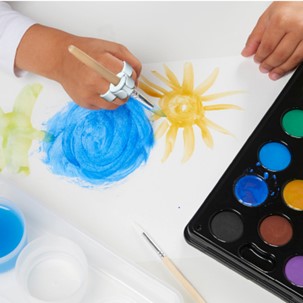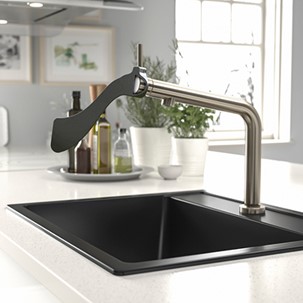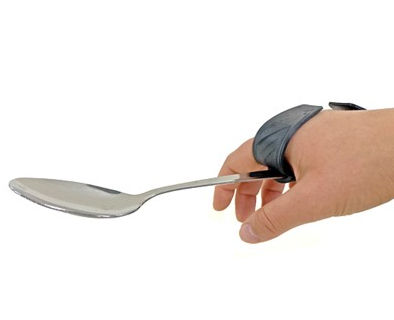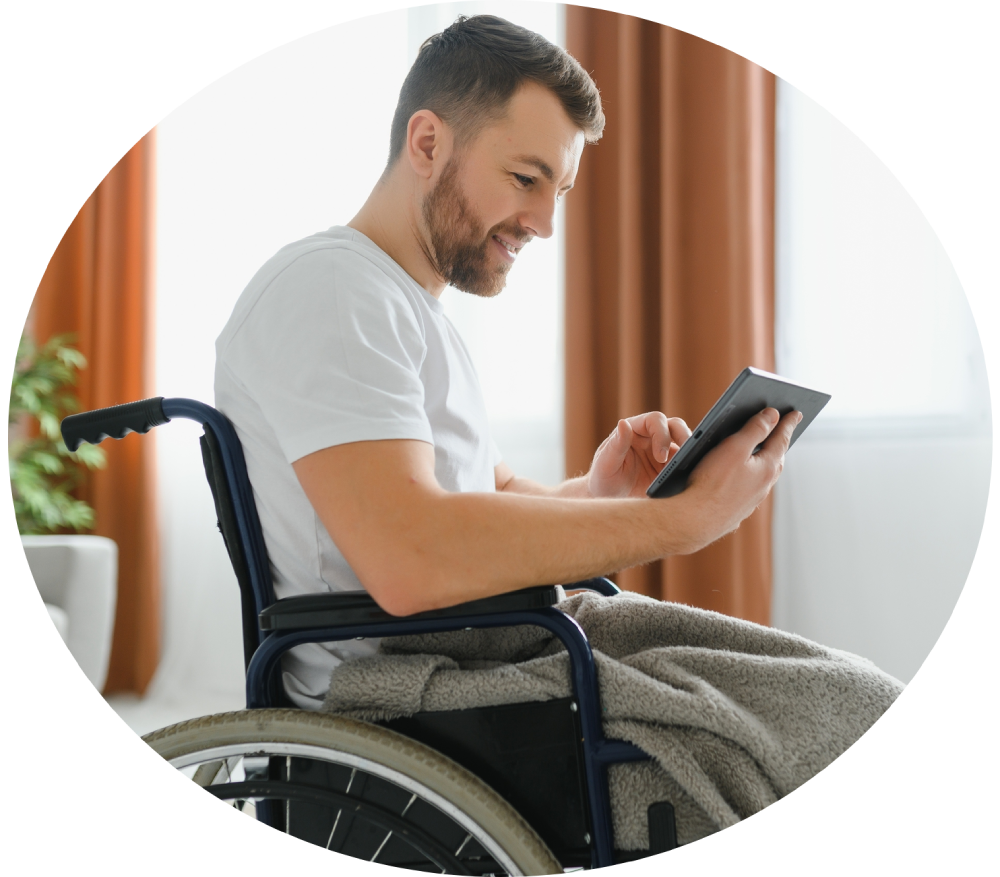Innovation holds immense importance for individuals with physical disabilities as it serves as a catalyst for enhancing their quality of life, promoting independence, and fostering inclusion in various aspects of society.
Innovative assistive technologies and mobility aids empower individuals with physical disabilities to navigate their environments with greater ease and autonomy. These innovations enhance confidence and self-reliance, enabling individuals to participate more fully in daily activities, employment, and social interactions.
ILAN's innovation wing works on a few levels. Our immediate goal is to provide increased independence at home or work, food related preparation and eating and recreation. We partner with TOM and have begun production of the following items.

Finger Brush - Painting Assistant
THE FUTURE: ILAN is planning to focus on:
Software innovation for individuals with physical disabilities includes speech recognition software, eye-tracking systems, and accessibility features in operating systems and applications. These innovations enable users to control devices, communicate, and access information more easily, regardless of physical limitations. Additionally, specialized software facilitates activities such as typing, browsing the web, and navigating digital interfaces through alternative input methods tailored to individual needs. By leveraging technology, software innovations empower individuals with physical disabilities to overcome barriers, participate in digital environments, and enhance their independence and quality of life.
Technological innovation for the physically disabled encompasses advancements in assistive devices, such as smart prosthetics, powered wheelchairs with navigation systems, and wearable sensors for monitoring health and movement. Communication technologies, including speech recognition software and eye-tracking devices, enable individuals with physical disabilities to interact with devices and access information more easily. Virtual reality (VR) and augmented reality (AR) applications offer immersive experiences for therapy and skill-building. These innovations enhance mobility, communication, and overall independence, empowering individuals with physical disabilities to lead more fulfilling lives and participate fully in society.





